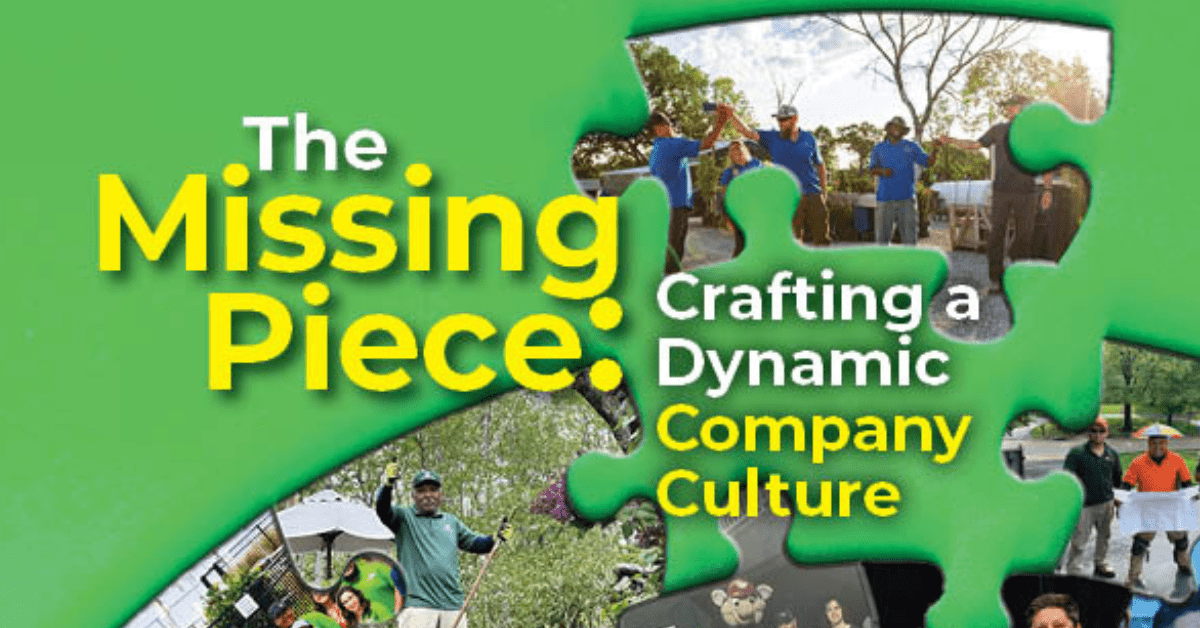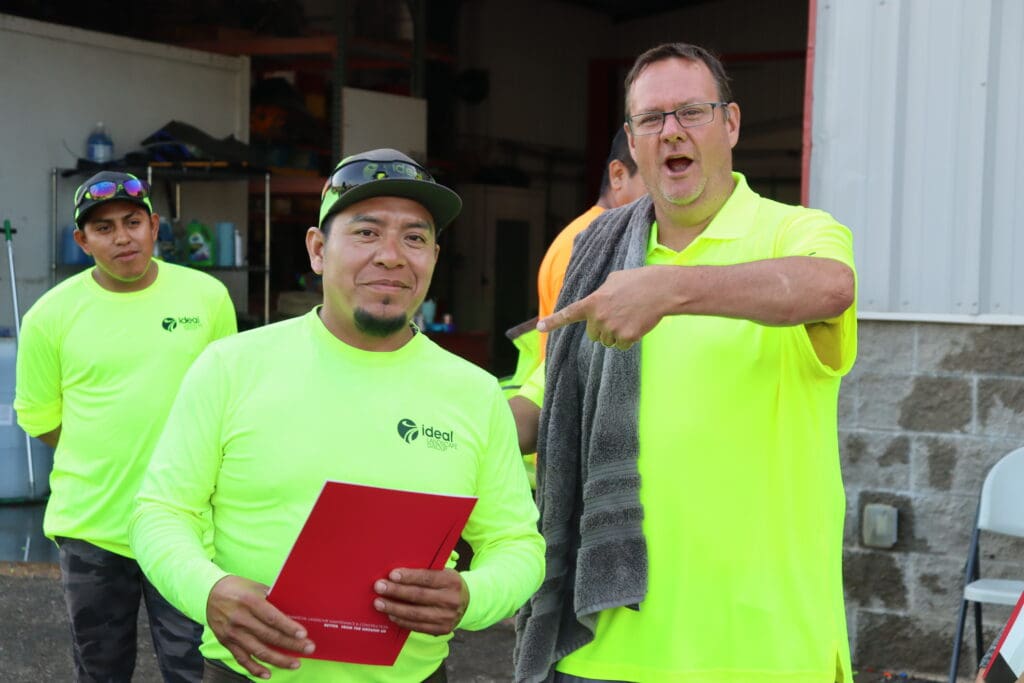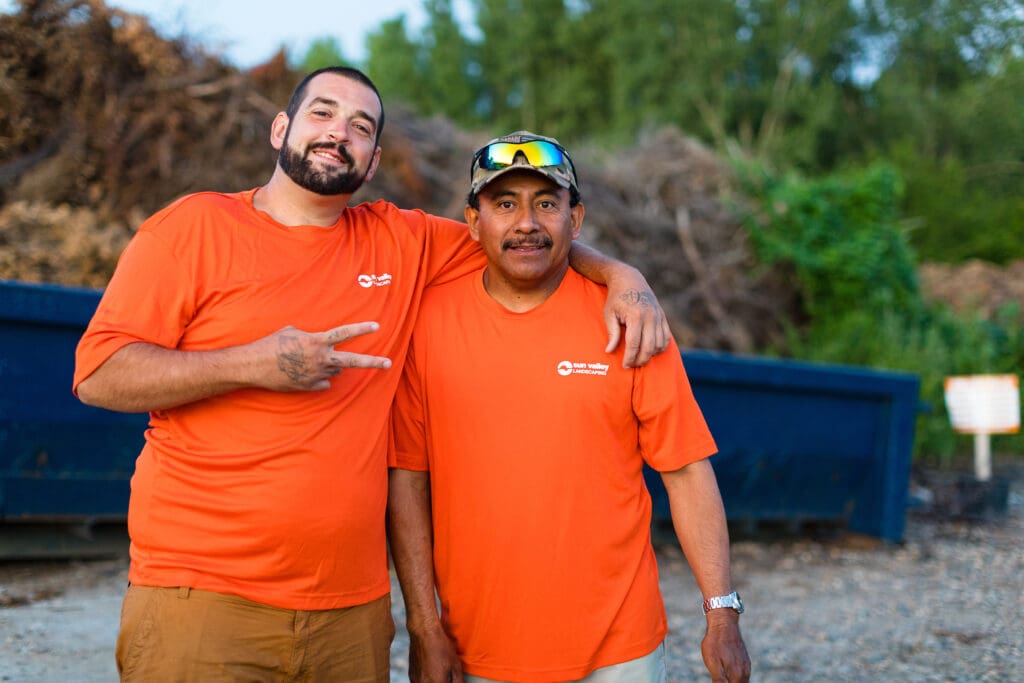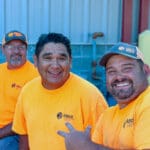
“Every company, community, institution, family and society has a culture,” says Paul Fraynd, co-owner of Sun Valley Landscaping, based in Omaha, Nebraska. “It starts anytime two people enter a room together.”
The question is – do you want to be intentional about your company culture or let it happen on a whim?
“I would ask: what is your year-over-year co-worker retention?” says Matthew Spiece, general manager of Joshua Tree Experts, based in Stockertown, Pennsylvania. “Would it be beneficial to your company if you could retain more people, thus requiring less time and money invested in onboarding? Would you provide a better service to your clients if you could retain great people who have acquired a high level of knowledge through time and training with your company? These are all benefits of great culture.”
Fraynd acknowledges that it can be easy to put culture on the back burner to work on later, but he says for long-term success, this is important work for an owner.
“I think it’s the lifeblood of the business,” Fraynd says. “If we want to build something that’s larger than ourselves as the owner, it’s going to be the most important work we can do.”
Defining Company Culture
Depending on who you ask, culture can be defined in a thousand different ways. Dean DeSantis, owner of DeSantis Landscapes, based in Portland, Oregon, says it can loosely described as ‘how we do things around here.’
“It’s not slogans on the wall; it’s not reciting the mission statement at company meetings; it’s not even about how many barbecues, Employee of the Month awards or work anniversary celebrations you may have, although those are all valuable pieces of a good workplace culture,” DeSantis says. “Your workplace culture is what happens on a day-to-day basis between team members…when you’re not looking…when you’re not there. It’s, in most cases, unwritten.”

Dave Buckel, president of Ideal Landscape Group, based in St. Louis, Missouri, says sometimes companies can think it’s just about salary or the commission base, but there’s much more to good company culture than fair wages.
“I cringe when I hear how other companies treat their employees, and then give the rationale that they had no other choice, or that they are getting paid great, so the employee should just be happy,” Buckel says. “There is so much more to being a business owner. It’s knowing your employees and their needs. It’s knowing that someone may be struggling through a medical crisis and being understanding. It’s knowing that an employee’s child is struggling and helping them, praying for them.”
Silas Dill, general manager of Ideal Landscape Group, adds that even financial success does not necessarily mean you have a healthy culture. He says in his seven years with the company, during the first three years, they had a lot of financial success despite a toxic culture at multiple levels. Now, with their strong culture in place, they have record-setting financials.
Company Culture in Action
Fraynd says that you can use whatever words you like, but it is the actions you take that are your true company culture.
“As leaders, everything communicates,” Fraynd says. “It’s up to us to make an intentional culture around our vision, values and goals. Our businesses tend to become reflections of how we show up at work, how we treat our team and our customers. Most importantly, the decisions we make.”
Leanna Buckel, vice president of Ideal Landscape Group, says their culture is one of teamwork, keeping a positive attitude, building people up, working with employees when mistakes are made, and always helping employees work to improve themselves as well as others around them.

“I’d like to believe that we are a company that looks at each person as an individual, not a cog to get the work done, that they are valuable, that they have families, personal issues that we may not be aware of, yet we will work with them as they need our help, and that they feel comfortable in asking for help,” Leanna says. “We are not a company that tolerates belittling of co-workers or negativity.”
She says they can see their culture in action when an account manager compliments a crew and the fact they have a low turnover rate and great profit margins.
“When an employee has a crisis and the whole company comes together to help them out whether financially or through their actions, covering for them so they don’t need to worry about work, this is what it looks like in action,” Dave Buckel says.
DeSantis says that his team follows the ‘DeSantis Way,’ which is broken down into 25 behaviors they believe lead to individual and collective success.
“The Fundamentals often come up in our day-to-day, for example, when we share testimonials from happy clients with the team, ‘Nice work, Juan, this is a great example of Fundamental #16 – Go the Extra Mile. Thanks for going the extra mile for our clients!’” DeSantis says. “Conversely, the Fundamentals are also brought up during corrective conversations with a team member. For example, ‘John, your truck is a mess; I need you to keep Fundamental #5 in mind, Be Obsessive About Organization.’”
Similarly, Joshua Tree Experts uses their five core values to shape a workplace with people who hold themselves accountable and trust their co-workers.

“Another value, ‘Find a way’ contributes to our follow-through and execution of projects, whether that is a tree care service, a lawn application, a marketing effort, a new service line, or anything else we put our minds to collectively,” Spiece says.
Fraynd says their culture is “People First,” as Sun Valley’s purpose is to serve all the humans that touch their business, whether that’s customers, employees or vendors.
“To fit here, you have to love serving people and providing hospitality,” Fraynd says. “This is more important than the landscape, how we treat all the humans that touch our business. This starts with showing up with good energy and having fun! Competing is fun, growth is fun, service is fun.”
Fraynd says he sees his culture in action when he receives compliments from customers who say how Sun Valley’s employees look so happy.
“We’re all of service to our customers,” Fraynd says. “We’re enjoying ourselves and having fun and like providing hospitality to them, and they notice and they appreciate it.”
Tackling Team Building Events
Hosting team events is another practice commonly confused with a strong company culture.
“I think it’s so easy to mistake, ‘We do a barbecue once a month,’ and that’s the culture,” Fraynd says. “It’s really not. It might be if the way you show up to that barbecue is engaged and caring about your people and their names. That is a reflection of it, but just having the event is not the culture.”

Fraynd says having company events is great, but it’s only the first step. The second step is for the leadership to be engaged as well. He says, ideally, there shouldn’t be little cliques within the field staff and the office staff.
“You should have a hard time knowing where everybody works,” Fraynd says. “They’re all just kind of equals. If we can create an environment where that’s possible that looks like doing things that everybody will enjoy.”
He says they’ve had the most success with simple events that involve the families like having a barbecue at a park. Fraynd says the amount of attendance they have for their company events and participation in community service speaks to the strength of their company culture.
DeSantis says that team-building events are critical for company culture.
“We spend a lot of time with one another at work and it’s important that we get to know each other as people, have fun together and don’t take ourselves too seriously,” DeSantis says.
Spiece says they believe and provide company-sponsored team activities to help build trust and relationships between co-workers. One of their values is “Work Hard/Play Hard” and they have hosted events such as holiday picnics, river rafting and department bowling.
As part of Ideal’s strategic planning, they take two days to go off-site and discuss what’s working for them, where they’re going and how to get there. One team-building activity they do during this event is create a meal with their assigned group. Afterward, they discuss the problems they had, how they overcame them, and how this can correlate with the people they supervise. Dill says they are always trying to keep activities new and fresh.
“We hosted our annual spring training recently and at the end of the day, we played a new game our shop manager had talked to me about called Pop Darts,” Dill says. “Very simple game and the staff loved it. Being a sports guy, I love to compete and enjoy seeing others compete as well. We put a little spin on it to make it interesting, giving away a couple hundred in cash, as well as some Ideal merch for the staff to pick from.”
Monitoring Company Culture
Culture is also something you can’t just set and forget. It calls for constantly listening to your team and working to improve based on their feedback.
Spiece says they have quarterly meetings between their supervisors and direct reports where culture is one of the topics, as well as quarterly company-wide meetings where they review and praise individuals who have exemplified them in the past quarter.

“We have received feedback from all levels of the company that we have great people at Joshua Tree Experts,” Spiece says. “We hire and retain people based on our culture and values as a #1 priority.”
Similarly, Ideal Landscape Group’s managers oversee a certain number of employees, allowing them to spend quality time with each crew. Dill says you have to know what makes your people tick.
“I’m not talking about your managers,” Dill says. “Start with the lowest level of your org chart. Treat them like you do your top-level managers. Create opportunities for your staff to learn and grow, reduce turnover and in return, your company will grow.”
DeSantis agrees you shouldn’t just listen to what leaders with titles in your organization have to say.
“At all levels of your company, you have leaders who hear firsthand what’s being talked about, how people are feeling and the questions, concerns or positive messages that your people are sharing amongst their teams,” DeSantis says.
Data-driven metrics like customer and employee satisfaction tend to be good indicators of a company culture thriving or in need of some attention.
Fraynd says they currently have a waiting list of people who want to work at the company, thanks to employee referrals. DeSantis says their recruiting and retention numbers tend to be a strong indicator of whether they’re maintaining their culture.
“As an example, we started noticing that the turnover in our maintenance team at one of our branches was unusually high, especially as we compared it to other branches, and as we started digging into it we started hearing stories of a supervisor who wasn’t talking to and treating his team in a way that was consistent with our values and culture that we wanted,” DeSantis says. “We ended up letting him go, and when you make decisions like that, that are values based, it sends a very strong message to your team about the culture.”
Advice for Others
Just like how you create plans and structures to reach the goals of your business, DeSantis says you should be doing the same for company culture.
“Write it down, communicate the vision or the plan and then hold everyone, including yourself, accountable for working and executing on the plan,” DeSantis says.
Spiece notes there are many tools available to build your culture, including books, programs and videos.

“You have a culture at your company already, so it’s happening,” Fraynd says. “You can either choose to craft it in a way that is representative of your own views of the world or you can let it just happen by accident, but it’s going to happen regardless.”
Dill says that if you focus on people, then the profits will follow.
“At the end of the day, we are all in the customer service business,” Fraynd says. “The best companies have excellent reputations for not only the landscape work, but in the experience they provide their customers and team members. They make landscaping fun and exciting.”
This article was published in the May/June issue of the magazine. To read more stories from The Edge magazine, click here to subscribe to the digital edition.




